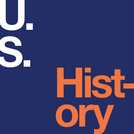
What is popular sovereignty? Is government the master of the people, or is it the other way around? Find out on today's podcast. [1:03]
- Subject:
- Social Studies
- Material Type:
- Audio/Video
- Provider:
- Center For Civic Education
- Date Added:
- 12/01/2023

What is popular sovereignty? Is government the master of the people, or is it the other way around? Find out on today's podcast. [1:03]

Learn about popular sovereignty, a foundational component to democracy, and the consent of the governed on today's podcast. [1:05]

The University of Chicago provides thousands of primary source documents concerning the diverse contents of the Constitution. Documents underlying the proposed Constitution, as well as documents of the time debating the proposed Constitution are available and sorted by the major themes of the Constitution. Links to each part of the text of the Constitution and the Bill of Rights are also available.

Read the words of John Adams at the Constitutional Convention where he is debating the meaning of "the people" in the Constitution.

An outstanding, interactive copy of the Kansas-Nebraska Act, the legislation that repealed the Missouri Compromise. Historical context included, as well as links to larger images, a typed transcript, and a downloadable PDF file.

Discusses the effects of the Kansas-Nebraska Act. In particular, the site details incidents from the period known as "Bleeding Kansas."

U.S. History is designed to meet the scope and sequence requirements of most introductory courses. The text provides a balanced approach to U.S. history, considering the people, events, and ideas that have shaped the United States from both the top down (politics, economics, diplomacy) and bottom up (eyewitness accounts, lived experience). U.S. History covers key forces that form the American experience, with particular attention to issues of race, class, and gender.Senior Contributing AuthorsP. Scott Corbett, Ventura CollegeVolker Janssen, California State University, FullertonJohn M. Lund, Keene State CollegeTodd Pfannestiel, Clarion UniversityPaul Vickery, Oral Roberts UniversitySylvie Waskiewicz


By the end of this section, you will be able to:
Explain how Great Britain’s response to the destruction of a British shipment of tea in Boston Harbor in 1773 set the stage for the Revolution
Describe the beginnings of the American Revolution


By the end of this section, you will be able to:
Explain the contested issues that led to the Compromise of 1850
Describe and analyze the reactions to the 1850 Fugitive Slave Act